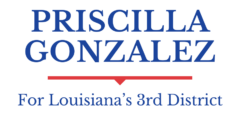Many residents in the 3rd District of Louisiana encounter significant barriers when attempting to access quality healthcare, especially those residing in rural areas. These challenges include limited availability of healthcare facilities, shortages of healthcare providers, long distances to travel for medical care, and financial constraints that hinder access to essential services. Addressing healthcare disparities and ensuring access to quality healthcare is paramount for promoting the overall well-being and health outcomes of district residents.
Healthcare Access and Affordability
One of the primary challenges facing rural communities in the 3rd District is the shortage of healthcare facilities and providers. Many rural areas lack hospitals, clinics, and specialty care services, forcing residents to travel long distances to receive medical treatment. Additionally, there is a shortage of primary care physicians, specialists, and other healthcare professionals in rural areas, further exacerbating access barriers and limiting the availability of timely and comprehensive care.
Financial constraints also pose significant challenges to accessing healthcare for many residents in the district. High healthcare costs, limited health insurance coverage, and out-of-pocket expenses can create barriers to seeking preventive care, managing chronic conditions, and accessing necessary medical treatments. As a result, many residents may delay or forego healthcare services due to cost concerns, leading to poorer health outcomes and increased healthcare disparities.
Solution
Addressing healthcare access and affordability in Louisiana necessitates a multifaceted strategy that addresses both acute concerns and underlying systemic issues. This is a thorough solution:
Medicaid Expansion
Louisiana should continue to expand Medicaid eligibility to help more low-income people and families. Expanding Medicaid improves uninsured residents’ access to healthcare services while lowering uncompensated care costs for hospitals and providers.
Telehealth Expansion
Expand telehealth services, particularly in rural and underserved areas, to improve healthcare access for populations who may suffer mobility challenges or live far away from healthcare institutions. This involves investing in telehealth infrastructure and paying providers for telehealth services on par with in-person consultations.
Community Health Centers
Invest in and expand the ability of community health centers and federally qualified health centers (FQHCs) to deliver primary care, preventative care, and behavioral health services to underserved populations. These facilities serve an important role in enhancing access to care for low-income persons and communities.
Workforce Development
Invest in healthcare workforce development programs to help solve the shortage of primary care physicians, nurses, and other healthcare workers, especially in rural and underserved areas. This includes funding scholarships, loan payback plans, and training initiatives to attract and retain healthcare providers in high-need areas.
Addressing Social Determinants of Health
Implement methods to address socioeconomic determinants of health, such as poverty, housing instability, food insecurity, and a lack of mobility, which can all have an impact on healthcare access and results. This could entail working with neighborhood organizations, housing agencies, and social service providers to address the underlying social and economic problems that influence health.
Prescription Drug Affordability
Implement initiatives to reduce prescription drug costs and enhance affordability for residents, such as investigating drug pricing transparency measures, encouraging generic drug use, and expanding access to lower-cost alternatives including biosimilars and generic copies of brand-name drugs.
Health Insurance Marketplace
Strengthen and promote Louisiana’s health insurance marketplace to increase individual and family access to affordable health insurance coverage. This involves investing in outreach and enrollment campaigns to inform residents about their coverage alternatives and financial aid available through the marketplace.
Addressing Health Disparities
Prioritize efforts to reduce health disparities and inequities across racial, ethnic, and socioeconomic groups. This could include targeted interventions, community-based efforts, and policy reforms aiming at eliminating inequities in access to care, health outcomes, and healthcare quality.
